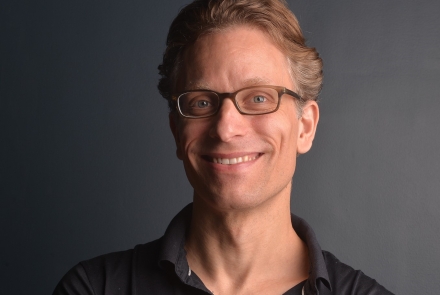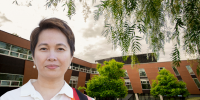
A lot of policy and a bit of dance: Meet Björn Dressel
Crawford School introduces our fantastic staff, so you can get to meet the people of Asia and the Pacific’s leading graduate policy school.
This time around, Associate Professor Björn Dressel walks us through how COVID-19 causes constitutional issues, and talks about some of the funny facts that students have shared with him over the years.
Why did you choose to work at Crawford School?
I was trained at (SAIS, Johns Hopkins University) and I taught (SIPA, Columbia University) at public policy schools before coming to Australia. My interdisciplinary background in law and politics, as well as my previous work with the World Bank and my interest in Southeast Asia made Crawford School a natural choice and a perfect fit. Our faculty and international students are outstanding, and the atmosphere is truly collegial, perhaps also as everyone is sincerely passionate about addressing real-world problems.
Meanwhile being nestled within the College of Asia & the Pacific (CAP), perhaps currently the best place on the globe to study Asian politics, also means that there is continuous engagement, both in theory and practice, with one of the most dynamic regions in the world. At this stage, I can’t see myself elsewhere.
Can you tell us a bit about how your research matters today?
Most of my work focuses on law and politics from a comparative perspective, with an emphasis on Asia. My research interests include constitutional law, judicial politics, and rule of law reform, using both qualitative and quantitative methods. I am currently finishing a book on judicial politics in Asia, where I highlight how the judiciary has become central to the politics in the region – often adjudicating on outright political questions with far-reaching ramifications for how governance and the rule of law in the region evolves.
The current COVID-19 crisis is a good case in point. The use of emergency powers in response to the crisis has raised numerous constitutional issues as citizens experience far-reaching intrusions in their personal freedoms and liberties. Perhaps even more worrisome though is the tendency among authoritarian and populist regimes around the globe to use these emergency powers and in the process erode existing constitutional safeguards and deinstitutionalise democratic practices. Whether and how courts might stem this trend will be crucial to democracy and the rule of law in the region and beyond.
Can you tell us about one of your funniest/most special moments when teaching a class?
I can honestly say that teaching at Crawford is always full of special and fun moments – hence it is hard to pinpoint particular events. In one of my large classes, I always ask students during the first class to introduce themselves by handing in a piece of paper, where in addition to their name, they also provide brief descriptions of themselves and share ‘one secret’. The revelations I received over the years have provided numerous laughs in class (e.g., “I love politics and economics with all my heart. If politics were a woman, I would have been married for a long time by now”). I should collate them one day! More recently, online classes have also been a source of comic relief. ‘Zooming into’ breakout sessions and seeing the look on the face of my students when you appear is just priceless!
If you could go back and choose a different career path, what would it be?
At this stage, I think I am right where I belong. There is much to love about academia – in particular in terms of the independence that it (still) provides for us to chart our own path based on our interests and curiosity. I consider myself very lucky in that respect. That is not to say that I don’t occasionally dream to do something different ‘on the side’ – perhaps open a small boutique hotel, a Latin Dance School or a boardgame café in Southeast Asia. Watch that space.
Can you give us your top three tips about how to stay positive during the COVID-19 outbreak?
The COVID-19 outbreak has brought about huge changes in our personal and (for some) professional lives. Like many, I also worry about the fact that one cannot see friends and family in person, particular when they need your support and/or live far away from you. Add the fact that it is currently uncertain when you might see them again.
But I also feel that this time is a chance for us to reconnect with loved ones in new ways and reconnect with ourselves and our inner compass. These have kept me going in these past few weeks:
• Regular online chats with friends and family – these have involved playing boardgames together, sharing cooking and baking achievements and even dancing together to the same music;
• Afternoon autumn walks with loved ones – I have set a goal to take a walk through every suburb of Canberra. I have had some unexpected discoveries already – Canberra can be exciting, believe it or not! Plus, walking is a good form of exercise;
• Living well in the midst of quarantine – Try your best to stay healthy through good food, proper sleep and exercise. Don’t know how to cook? Gym is closed? So what! Little did I know what I can do at home with some YouTube clips. I might come out of this feeling fitter than ever – though I admit that some yoga poses have taken a toll on me.
Having said all of this, I also can’t wait to get back to Crawford to see my students and colleagues again in person soon. Who thought I would say that weeks ago?
Updated: 26 July 2024/Responsible Officer: Crawford Engagement/Page Contact: CAP Web Team












